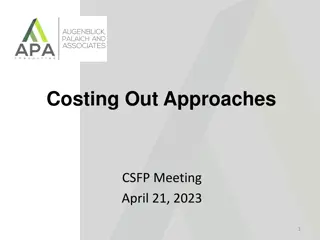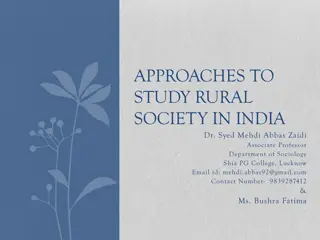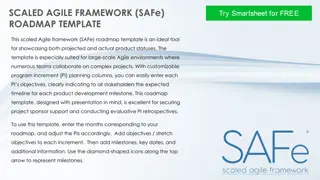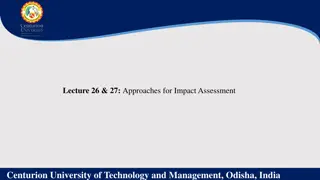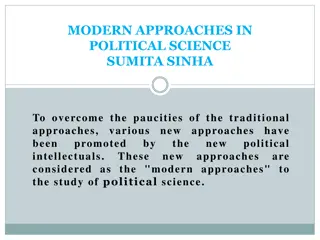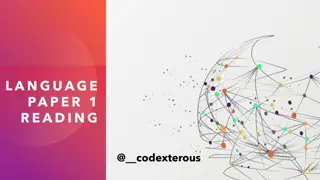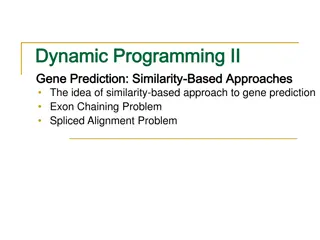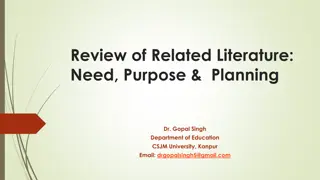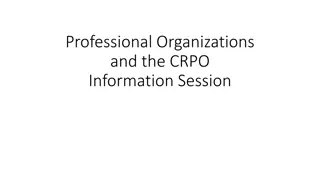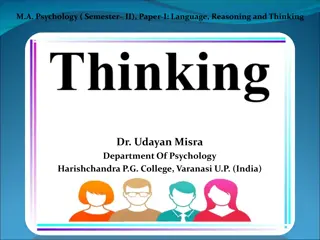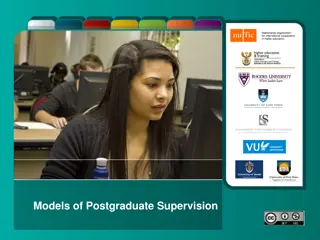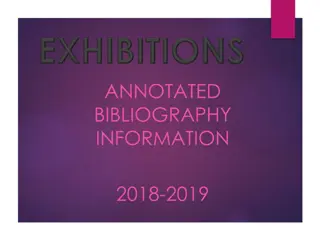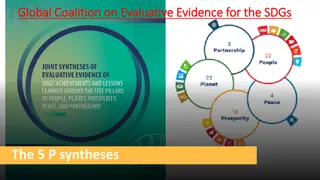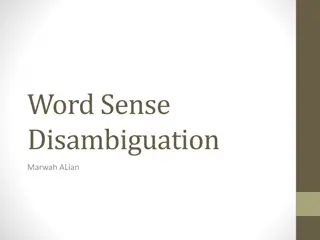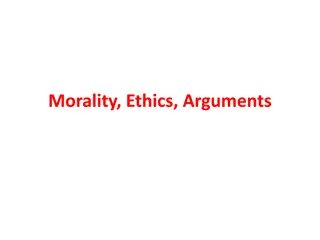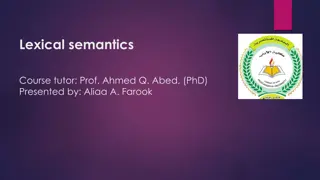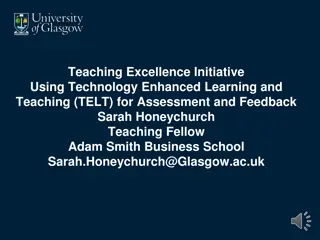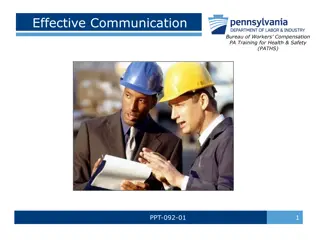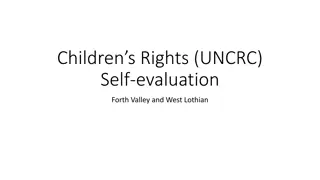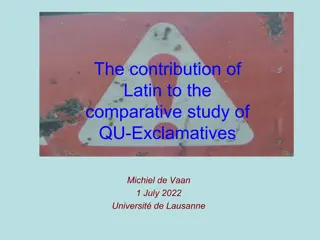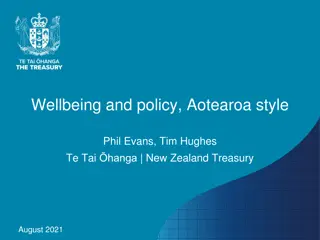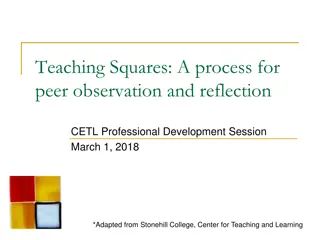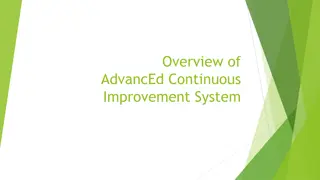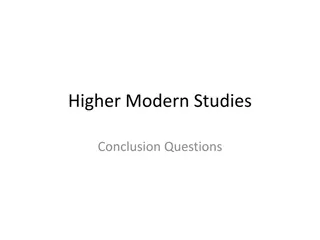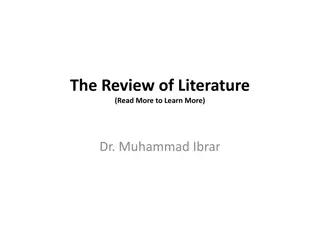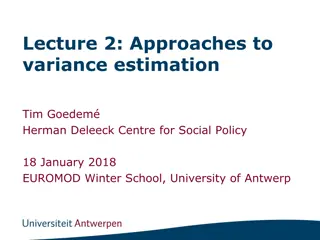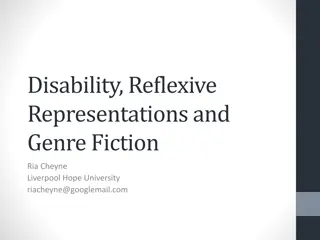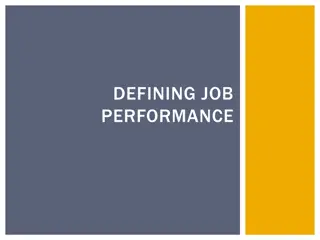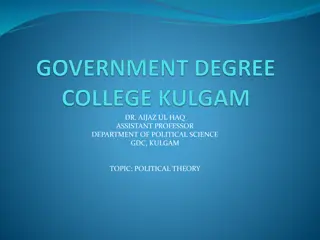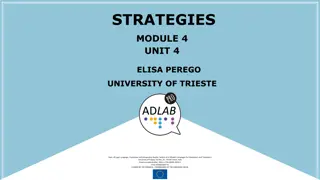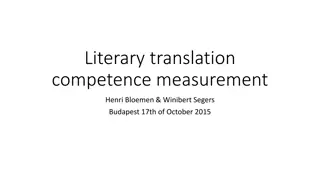get⚡[PDF]❤ Building Habitats on the Moon: Engineering Approaches to Lunar Settle
\"COPY LINK HERE ; https:\/\/getpdf.readbooks.link\/3319682423\n\n[PDF READ ONLINE] Building Habitats on the Moon: Engineering Approaches to Lunar Settlements (Springer Praxis Books) | Building Habitats on the Moon: Engineering Approaches to Lunar Settlements (Springer Praxis Books)\n\"\n
1 views • 6 slides
Approaches in Studying Human-Environment Relationship
Explore different approaches to understanding the dynamic relationship between humans and their environment, including deterministic, teleological, possibilistic, and economic deterministic perspectives. These approaches shed light on how human actions and interactions with the environment have evol
1 views • 9 slides
Treatment of Acute malnutrition using Simplified Approaches.
Simplified approaches in the treatment of acute malnutrition involve modifications to existing protocols to optimize effectiveness, quality, and cost-efficiency. These approaches include family MUAC screening, CHW-led treatment, reduced follow-up visits, expanded admission criteria, single treatment
1 views • 15 slides
Understanding Major Approaches to Educational Planning
Educational planning involves forecasting needs and setting up frameworks for national action. It plays a crucial role in linking education with economic development. Four major approaches to educational planning include Manpower Planning, Social Demand, Rate of Returns, and Social Justice approache
4 views • 11 slides
Costing Out Approaches
Costing out approaches and studies have been developed to ensure schools and districts have adequate resources to meet state education standards. Implementing these approaches involves professional judgment, evidence-based benchmarks, and data requirements. Using multiple approaches allows for trian
0 views • 12 slides
Approaches to Competency-Based Approaches: Support Devices at the UHA Scale
Deployment of Competency-Based Approaches at UHA entails personalized support mechanisms for undergraduate, professional, and master's students. The process involves multiple levels of actors, structured timelines, and a framework for initiating and implementing the approach. Various strategies are
1 views • 28 slides
Approaches to Study Rural Society in India
Study approaches in rural society analysis include historical, structural-functional, comparative, interdisciplinary, cross-cultural, and conflict approaches. These methods delve into factors shaping rural development, societal structures, and inter-village comparisons, contributing to a comprehensi
2 views • 9 slides
SAFe Roadmap Template for Large-Scale Agile Environments
This SAFe roadmap template is designed for showcasing projected and actual product statuses in large-scale Agile environments. It features customizable Program Increment planning columns to indicate objectives, timelines, milestones, and additional details. Ideal for securing project sponsor support
2 views • 4 slides
Approaches for Impact Assessment at Centurion University, India
Various approaches for impact assessment include Experimental Design, Quasi-Experimental Design, Before-After Comparison, Counterfactual Analysis, Cost-Benefit Analysis, Qualitative Methods, and Mixed Methods. These methods help evaluate the effectiveness and efficiency of interventions by measuring
0 views • 4 slides
Overview of 38 CFR Part 4 Rating Schedule
This class provides a general overview of 38 CFR Part 4, covering essential aspects such as evaluative rating, resolution of reasonable doubt, evaluation of evidence, and principles for assigning disability ratings. It emphasizes the importance of accurate medical exams and understanding rating perc
0 views • 84 slides
Modern Approaches in Political Science: Overview and Characteristics
Explore modern approaches in political science pioneered by intellectuals to address the limitations of traditional methods. These approaches emphasize empirical data, interdisciplinary study, and scientific methods to draw conclusions beyond political structures and historical analysis. Key modern
1 views • 13 slides
Examining Language and Structure in GCSE English Language Preparation
Exploring the effective preparation strategies for GCSE English Language through language and structural analysis. Techniques for shaping meaning using evaluative words, image interpretation, and identifying key structural moments in texts are discussed and exemplified.
1 views • 14 slides
Gene Prediction: Similarity-Based Approaches in Bioinformatics
Gene prediction in bioinformatics involves predicting gene locations in a genome using different approaches like statistical methods and similarity-based approaches. The similarity-based approach uses known genes as a template to predict unknown genes in newly sequenced DNA fragments. This method in
1 views • 40 slides
Understanding Literature Reviews: Process, Purpose, and Types
A literature review is an essential part of academic research, providing a synthesis of existing studies on a topic. It involves reviewing published information within a specific subject area to help the reader understand the research background. The process of conducting a literature review is meti
0 views • 70 slides
Professional Organizations and the CRPO Information Session
Professional organizations like AAMFT, CAMFT, and OAMFT play a crucial role in protecting providers, offering services, and providing training at better rates for Marriage and Family Therapists and healthcare providers. The American Association for Marriage and Family Therapy (AAMFT) is a prominent
0 views • 61 slides
Understanding Different Types of Thinking in Psychology
Thinking is a complex mental process that involves manipulation of information to find solutions or make decisions. This process includes concepts, propositions, and images and can be goal-oriented and influenced by past experiences. Different types of thinking include Autistic, Realistic, Convergen
1 views • 10 slides
Understanding Models of Postgraduate Supervision and Different Supervisory Approaches
Explore the various roles, styles, and models of postgraduate supervision, delving into the distinctions between supervisor tasks, interaction approaches, and supervision structures. Learn how different supervision models like one-on-one, panel, project, and doctoral programme supervision impact res
1 views • 13 slides
Understanding Annotated Bibliographies: A Comprehensive Guide
An annotated bibliography is a curated list of citations to various sources followed by descriptive and evaluative paragraphs, providing insight into the relevance, accuracy, and quality of each source. It serves as a valuable tool for researchers to organize, evaluate, and document their sources ef
0 views • 13 slides
Approaches to Study Comparative Politics: Traditional vs. Modern Perspectives
This chapter discusses the importance of approaches in the study of comparative politics, categorizing them into traditional and modern perspectives. Traditional approaches include philosophical, historical, and traditional institutional approaches, highlighting their strengths and limitations. Mode
0 views • 7 slides
Global Coalition on Evaluative Evidence for the SDGs
The Global Coalition on Evaluative Evidence for the SDGs aims to synthesize existing data to accelerate SDG achievements by providing insights, analysis, and policy recommendations. It focuses on evaluating the progress towards the SDGs, identifying barriers, and suggesting ways to achieve the goals
0 views • 8 slides
Understanding Word Sense Disambiguation: Challenges and Approaches
Word Sense Disambiguation (WSD) is a complex task in artificial intelligence that aims to determine the correct sense of a word in context. It involves classifying a word into predefined classes based on its meaning in a specific context. WSD requires not only linguistic knowledge but also knowledge
2 views • 12 slides
Evaluating GEF's Performance and Impact through OPS5 Consultations
The OPS5 consultations in Dakar, March 2013 aimed to assess the GEF's effectiveness in achieving its objectives, identify potential improvements, and integrate evaluative evidence across various streams including country portfolio evaluations and thematic evaluations. The study also focused on refin
2 views • 20 slides
Understanding Morality, Ethics, and Arguments in Philosophy
Morality and ethics are interconnected concepts that delve into the principles of right and wrong conduct. They involve disciplined reflection on human moral intuitions and choices. Valid and invalid moral arguments exemplify the importance of drawing evaluative conclusions from facts. Various ethic
0 views • 9 slides
Combatting Kidney Disease in Children: Importance of Early Detection and Education
Kidney disease affects millions worldwide, including children at risk from an early age. Encouraging education, early detection, and a healthy lifestyle is crucial to combat preventable kidney diseases. Various disorders like Vesicoureteral Reflux (VUR) and UTIs pose significant challenges, emphasiz
0 views • 11 slides
Understanding Lexical Semantics: An Overview
Lexical semantics explores the relationships words have with each other and with our understanding of reality. It delves into reference and sense, naming theory, synonymy, and more. Reference focuses on how words relate to objects, while sense deals with relationships between lexical items. Naming t
0 views • 10 slides
Using Technology for Assessment and Feedback in Teaching Excellence Initiative
Self-regulated learners in higher education benefit from active involvement in assessment and feedback processes, leading to deeper learning. Good assessment and feedback practices promote self-regulation by engaging students in setting goals, making evaluative decisions, generating feedback, and re
0 views • 6 slides
Effective Communication in Workplace Safety Training
This presentation covers the importance of effective communication in workplace safety training, emphasizing the elements of a communication plan, communication processes, and the realities of communication. It explores the consequences of failure to communicate safety information effectively and di
1 views • 31 slides
Children's Rights (UNCRC) Self-evaluation Resource for Educational Settings
Introduction of the UNCRC incorporation into Scots law and its implications for educational settings. Designed to provide evaluative statements, examples, and prompts for understanding and implementing children's rights in practice. Includes guidance on using the resource and navigation through 5 se
0 views • 108 slides
Latin's Contribution to Comparative Study of QU-Exclamatives
The study explores the role of Latin in examining QU-Exclamatives, evaluative phrases introduced by an exclamative word. It delves into the syntax, origins, and examples of QU-exclamatives in various languages like French, Albanian, and Old English.
0 views • 22 slides
Insights into Wellbeing and Policy: Aotearoa's Approach
Explore Aotearoa's unique approach to wellbeing and policy through He Ara Waiora, emphasizing Maori knowledge and perspectives. This indigenous framework focuses on interconnected aspects of waiora, including Wairua (spirit), Te Taiao (the natural world), and Te Ira Tangata (the human domain). It pr
0 views • 14 slides
Peer Observation and Reflection in Teaching Squares
Teaching Squares is a collaborative process for reciprocal peer observation and reflection in the context of professional development. It involves non-evaluative steps such as an initial meeting, three classroom visits, and a square share discussion. Best practices include creating cross-disciplinar
0 views • 6 slides
Transforming Education Through AdvancEd Continuous Improvement System
Explore the journey of education and accreditation as ongoing processes, supported by AdvancEd Performance Standards and Continuous Improvement System. Learn about the tools, resources, and technology platforms provided to institutions for evaluating and driving institutional transformation. Discove
1 views • 13 slides
Analyzing Links Between Social Exclusion and Health in Scotland
Analyzing the relationship between social exclusion and health in Scotland, this task requires drawing conclusions based on evidence from multiple sources. Examples provided demonstrate how social exclusion impacts health outcomes, with varying levels of evaluative language and synthesis between sou
0 views • 17 slides
Understanding Types and Purpose of Literature Reviews in Research
Literature review plays a crucial role in research by summarizing existing knowledge, theories, methodologies, and research gaps. Types include Evaluative, Exploratory, and Instrumental reviews, each serving a unique purpose. The main objective is to convey previous findings and establish a strong f
0 views • 15 slides
Approaches to Variance Estimation in Social Policy Research
This lecture discusses approaches to estimating sampling variance and confidence intervals in social policy research, covering topics such as total survey error, determinants of sampling variance, analytical approaches, replication-based approaches, and the ultimate cluster method. Various methods a
1 views • 34 slides
Disability, Reflexive Representations in Genre Fiction: Exploring Cultural Perspectives
Disability studies, a vital academic discipline, delves into societal perceptions and policies around disability, challenging norms through evaluative and positive-image approaches. This exploration includes cultural analysis, critical assessments, and nuanced representations in genre fiction, offer
0 views • 18 slides
Understanding Job Performance and its Determinants
Job performance encompasses what employees do and the results they achieve, often influenced by factors beyond their control. Productivity, evaluative nature, and multidimensional aspects characterize performance evaluation. Performance is determined by declarative knowledge, procedural knowledge, a
0 views • 14 slides
Understanding Political Theory: Definitions, Differences, and Significance
Political theory encompasses systematic explanations of political phenomena, distinct from political thought which involves ideas and opinions of philosophers. It constitutes both political science and philosophy, addressing both empirical and evaluative aspects. The significance lies in finding sol
0 views • 7 slides
Effective Strategies for Creating Engaging Advertisements
Discover effective strategies for formulating engaging advertisements, such as observational skills, writing skills, and concise language use. Explore the use of meticulous, visually intense, and usable content to captivate audiences in the realm of visual arts and museum advertisements. Learn about
0 views • 17 slides
Understanding Competence Measurement in Literary Translation
Exploring the concept of competence measurement in literary translation, this text delves into the ELV competence model, a five-step scheme for measurement, reliability versus validity, and the relationship between competence measurement and translation product evaluation. It discusses the importanc
0 views • 18 slides
![get⚡[PDF]❤ Building Habitats on the Moon: Engineering Approaches to Lunar Settle](/thumb/21624/get-pdf-building-habitats-on-the-moon-engineering-approaches-to-lunar-settle.jpg)



